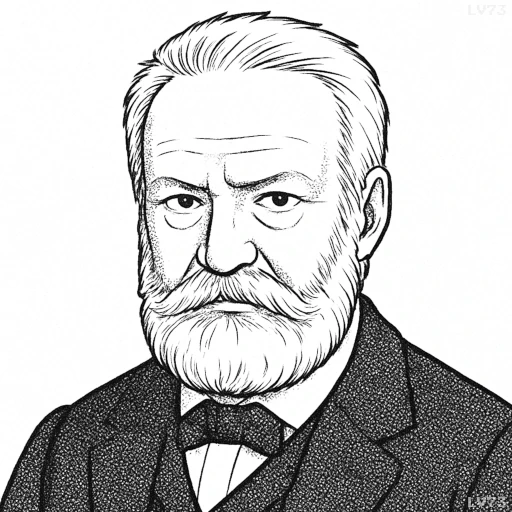“Rhyme, that enslaved queen, that supreme charm of our poetry, that creator of our meter.”

- February 26, 1802 – May 22, 1885
- Born in France
- Author, poet, playwright
table of contents
Quote
“Rhyme, that enslaved queen, that supreme charm of our poetry, that creator of our meter.”
Explanation
Victor Hugo reflects on the dual nature of rhyme in poetry, acknowledging both its beauty and its limitations. He personifies rhyme as a queen, a powerful and dominant force that gives structure and rhythm to poetry, but also as enslaved, suggesting that while it is an essential and enchanting aspect of poetic form, it can also restrict a poet’s creative freedom. Rhyme is described as the creator of meter, meaning it plays a central role in shaping the rhythmic patterns that define poetry. However, Hugo’s use of the term “enslaved” hints at the idea that poets can sometimes feel constrained by the rigid patterns of rhyme, which, while beautiful, may limit their expression and imagination.
This statement reflects Hugo’s complex relationship with form in poetry. As a Romantic poet, Hugo was invested in exploring the emotional and expressive power of language, and while he appreciated the structure that rhyme provides, he also recognized the tension between artistic freedom and adherence to traditional rules. For Hugo, rhyme and meter were tools to be used, but they should not overshadow the poet’s deeper expression of emotion and meaning.
In modern terms, this quote speaks to the balance between structure and creativity in art. While form—whether in poetry, music, or visual art—can provide a sense of order and beauty, it can also restrict the artist’s freedom if it becomes too rigid or formulaic. Hugo’s words encourage us to embrace the power of form and structure but to remember that creativity thrives when it is not bound by rules that limit its full expression.
Would you like to share your impressions or related stories about this quote in the comments section?




